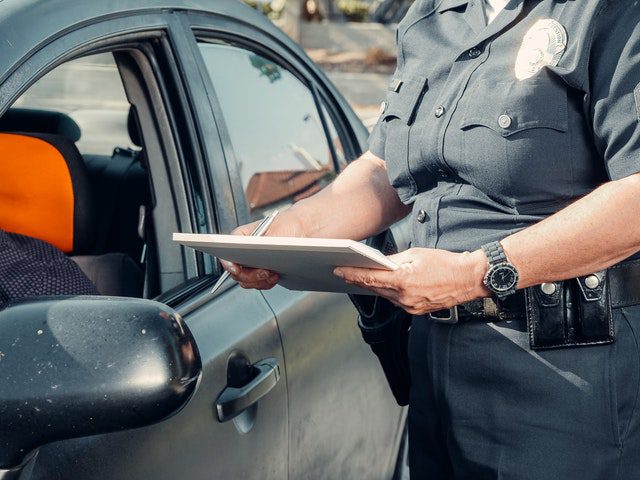Some of us have had the unlucky situation of being pulled over for not wearing a seat belt. Though this seems like a harmless error, these sorts of tickets do unfortunately affect insurance premiums.
Read on, and we’ll unpack for you all you need to know about the cost of seat belt tickets.
Why do Seat Belt Laws Exist?
Seat belt laws were put into place to increase seat belt usage, and they have actually been very effective in that regard. According to the U.S. Department of Transportation, seat belt usage in 2020 was 90.3%, which is an increase from 81.2% 15 years ago.
During this time, the percentage of unrestrained passenger fatalities in daytime car accidents has declined from 45.5% to 38.5%, showing that the increased seat belt usage is effectively increasing safety.
How are seat belt laws enforced?
It’s useful to understand what your state’s laws are when it comes to driving without a seatbelt. As of the DOT’s 2020 report, 35 states have primary enforcement seat belt laws, meaning you can be pulled over simply for not having a seat belt on. The one exception is New Hampshire, which does not have a seat belt law.
Nearly all other states have secondary enforcement seat belt laws where you can be cited as long as you were pulled over for another reason. In these states, having your seat belt off is not enough to get you pulled over. But if you have an expired license or your headlight is out, then the police can also ticket you for not using a seat belt.
Moving vs. Non-Moving Violations
Based on the state where you live, if you get a ticket for not using your seat belt, this will be classified as either:
- A moving violation: This happens when your car is in motion, and they are a more severe type of violation. Examples are speeding and running a red light. Some states consider seat belt laws as moving violations.
- A non-moving violation: This occurs when the car isn’t moving, such as a parking ticket or a car maintenance issue. Most states consider seat belt laws as non-moving violations.
Unfortunately, there isn’t a one-size-fits-all approach to seat belt laws, as each state handles them differently. Essentially, if your state considers seat belt tickets as a moving violation, they are worse violations.
How Seat Belt Tickets Affect Insurance Premiums?
If your state considers seat belt tickets non-moving violations, the fines can be lower. They will also generally not cause your insurance company to raise your premium. However, they may still affect the safe driver discount you are getting, which can, in effect raise the cost of your premium.
Another thing to consider is that many states use a points system for drivers, and if you accumulate a certain number of infractions, you lose your license. In most states, non-moving violations are not added as points, so you shouldn’t see significant effects from this ticket.
However, in some states, such as California, not wearing a seat belt is a moving violation, which means that it is going to be put on your driving record and reported to your insurance company. In this case, the insurance premiums will likely increase from having a moving violation.
When will you see the effects on your insurance premiums?
If you are wondering whether your insurance company is going to call you up and raise your rates the week after your seat belt ticket, take a breath. If you are new to your car insurance company, they will likely check your record at least yearly for a while until you prove to be a safe driver.
If you’re a veteran to your insurance company, though, they will mostly just check your record when you are getting a new plan or renewing your current one. They may also look up your record when you add a driver or a car.
So even if you did get a moving violation for your seat belt ticket, you may not see an effect on your insurance rates for a few months or more. Most companies only check the past three to five years of your record, so you can outgrow a poor driving record from your teenage years.
What can you do if your rates go up?

If your rates increased because of a seat belt ticket, you may be needing other ways to reduce your insurance premium. You could consider one of these options to help counter the blow:
- Talk to your agent about changing your insurance plan. They may offer a cheaper plan that you can switch to. You can also look up insurance rates by VIN.
- Signing up for a safe-driving incentive program with your insurance company. These use a phone app or a device that tracks your driving patterns and gives you discounts for safe driving.
- Take a state-approved safe accident prevention class. Depending on what state you live in, insurance companies are required to give you a discount when you take a safe-driving class.
- Find other ways to save money and make a financial plan. Cut back on some unnecessary expenditures and practice spending less.
Remember that any traffic violations only affect your insurance rates for up to about five years. As long as you maintain a good driving record moving forward, you can recover and see lower premiums if you give it enough time.
Should I wear a seatbelt?
The answer here is definitely yes, and not only for the sake of insurance premiums. Even if your state considers seat belt laws non-moving violations, your main concern should be the safety factor.
According to the National Highway Traffic Safety Administration, 47% of the passengers who died in vehicle accidents in 2019 were not wearing seatbelts.
Also, if you buckle up in the front seat of the car, you reduce your risk of a moderate to critical injury by 50%, according to the NHTSA.
By wearing your seat belt, you can save money by avoiding seat belt violations while also protecting yourself.


